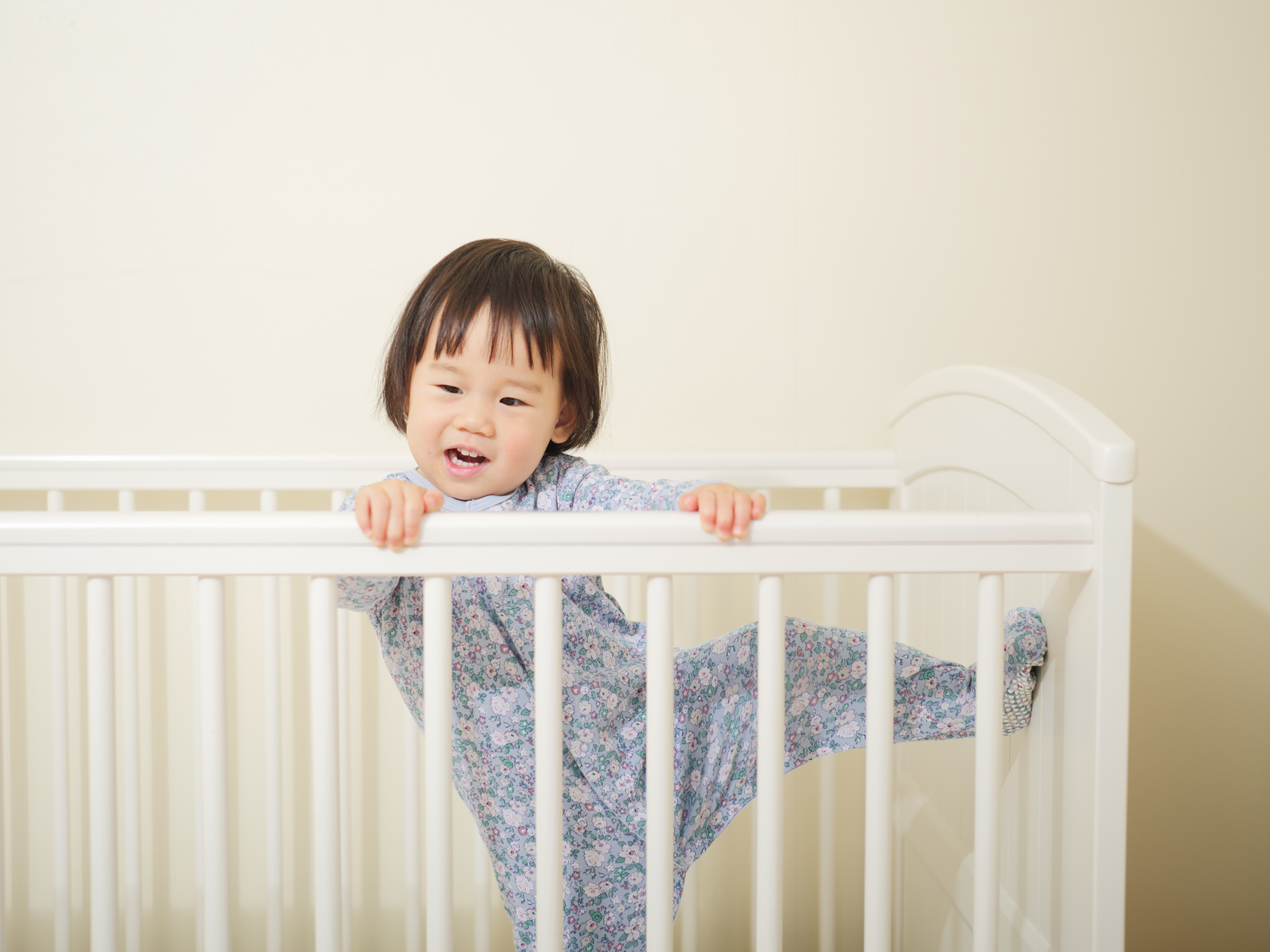Congratulations, you survived the roller-coaster ride of newborn and infant sleep and now you have a toddler! Life is sweet. But wait – why is your 2-year-old refusing their nap and running around the house like a madman at 8:30pm? You’ve overcome the days of confusing baby sleep but your toddler might have some tricks up their sleeve for you too!
Let’s talk about naps!
Around the age of 2 – 2.5 years your toddler might suddenly stop taking naps. “Nooo!” you will think, “I’m not ready to give up your naps!” And fear not, you don’t have to give them up. At 2 – 2.5 years old many toddlers will stop napping for a week or two because they are going through a significant period of development and their brain is opting to have a workout instead of sleeping. This does not mean that all is lost and the naps are gone forever! It is important to maintain your schedule and routines, continue putting your child down for the nap at the same time and allowing them 2 hours of crib time to rest even if they are not asleep. You will most likely find that the nap comes back and all is right with the world again! During this time it is important to make sure that you are not falling into bad habits like laying with your child at nap time, shortening their crib time because they haven’t fallen asleep, or allowing them to skip crib time altogether. As long as you are consistent and your child continues to know what is expected of him or her, you should see those naps come back in no time at all.
Sign Up For Our Newsletter
Energetic and active kids
So what about the child who’s running around the house, amped up and wild, at 8:30pm? Many parents assume that as their child gets older their bedtime needs to be later, and because their child is energetic and active in the later evening they keep them up. A lot of parents describe their toddler as ‘crashing’ at bedtime because they finally run out of steam and fall asleep. What a lot of parents don’t know, however, is that their toddler is likely overtired and could have easily gone to sleep hours earlier. What is mistaken as energy is actually a second wind, or the body’s attempt to keep a very tired person awake. If you miss the glorious sleep window – the time when your child is primed for sleep – they will slip into an overtired state and you will see a wild, active toddler running around your house. Parents may find that if they move their toddler’s bedtime much earlier and get them down before that second wind they will actually fall asleep quite easily and enjoy a long night of restorative sleep. It might seem daunting to put your child to bed much earlier than you are used to, and parents understandably worry that this will lead to a very early wakeup, but we know that sleep leads to sleep, and well rested children sleep better.
Early Rising
Many toddlers will be up at the crack of dawn, ready to conquer the world and completely oblivious to their parents’ distaste for early mornings. It’s tricky when your child can’t tell time and doesn’t know when they are allowed to be awake for the day, so I highly recommend using a toddler clock for this purpose. You can set the clock to change colour at your ‘ok to wake time’ and your child will learn that until the clock turns to that colour it is still time to be sleeping. Brilliant! My son used to lay in his bed yelling at the clock, begging it to ‘wake up’ (and of course it eventually would wake up, which reinforced his idea that he could control its wakeup time!). Toddler clocks are a really nice way to teach your child to sleep, rest or stay in their bed until a pre-determined time of day and setting the clock can become a lovely part of your bedtime routine as well.
Toddlers are adorable, magical little creatures who, with a few key sleep tips in mind, can have healthy, restorative sleep for their nights and naps.











